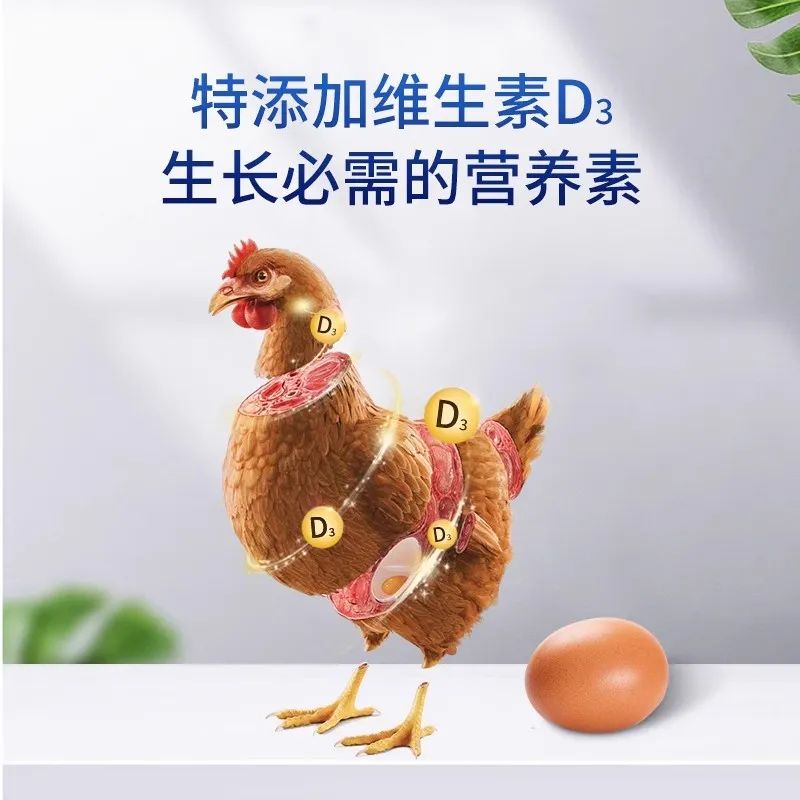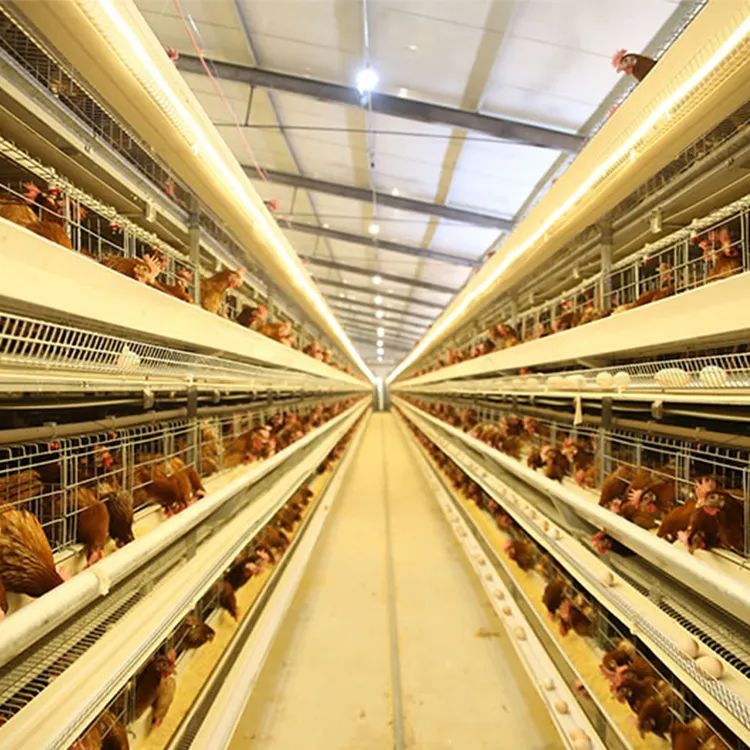
The importance of vitamin D in laying hens breeding
1、 Definition of Vitamin D
Vitamin D, also known as calcium (or osteoclasts), is a derivative of steroids and an active substance related to calcium and phosphorus metabolism. Vitamin D has two active forms: ergocalciferol (D2) and cholecalciferol (D3).

2、 The properties of vitamin D
Vitamin D2 comes from ergosterol in plants, which is a white to yellow crystalline powder with no odor. It is easily soluble in organic solvents, slightly soluble in fats, but almost insoluble in water. Its melting point is 113-118 ℃, and it quickly breaks down when exposed to light, oxygen, and acid.
Vitamin D3 comes from 7-dehydrocholesterol in animals, and crystalline vitamin D3 is a white needle like substance that is relatively stable in low temperatures and dark environments. Ultraviolet radiation, rancid fats, and mineral elements can all cause their oxidation to fail. For chickens, the activity of vitamin D3 is much higher than that of vitamin D2, with the former being 20-40 times higher than the latter.
3、 The absorption and metabolism of vitamin D
Vitamin D is mainly absorbed in the small intestine and enters the bloodstream after absorption. It is mainly stored in the liver, kidneys, and lungs of chickens, and in small amounts in the skin and fat.
Vitamin D needs to be hydroxylated in the liver and kidneys to have a certain effect. In the liver, vitamin D3 generates 25-OH-D3 under the action of 25-hydroxylase; In the kidneys, vitamin D3 can be further converted into 1,25- (OH) 2-D3.
4、 The importance of vitamin D in laying hens breeding
Vitamin D is the main vitamin for calcium balance and bone metabolism. Lack of vitamin D will affect the absorption and metabolic mechanisms of calcium and phosphorus, leading to incomplete bone calcification. If growing chickens lack vitamin D, they will not be able to deposit calcium salts normally, leading to bone softening and deformities, resulting in rickets, growth obstruction, and poor feather coverage. Lack of vitamin D in broiler chickens can lead to symptoms such as osteoporosis, decalcification, and bone deformation, known as chondropathy. For laying hens, a lack of vitamin D can affect eggshell quality and egg production rate, resulting in soft shell and thin shell eggs.
Most animals are less prone to poisoning when fed high doses of vitamin D in the short term, as they can tolerate up to 100 times the required dose; Long term feeding of high doses of vitamin D can lead to vitamin D poisoning, manifested as limping, osteosclerosis, and soft tissue calcium deposition.

5、 Remedial measures for vitamin D deficiency
① Timely adjust the feed formula and supplement with vitamin D;
② Place the sick chicken in a well lit and ventilated chicken coop;
③ When chickens develop rickets, they can be fed a large dose of vitamin D or injected intramuscularly with vitamin D3;
④ Supplementing with gravel can improve the utilization rate of feed.
